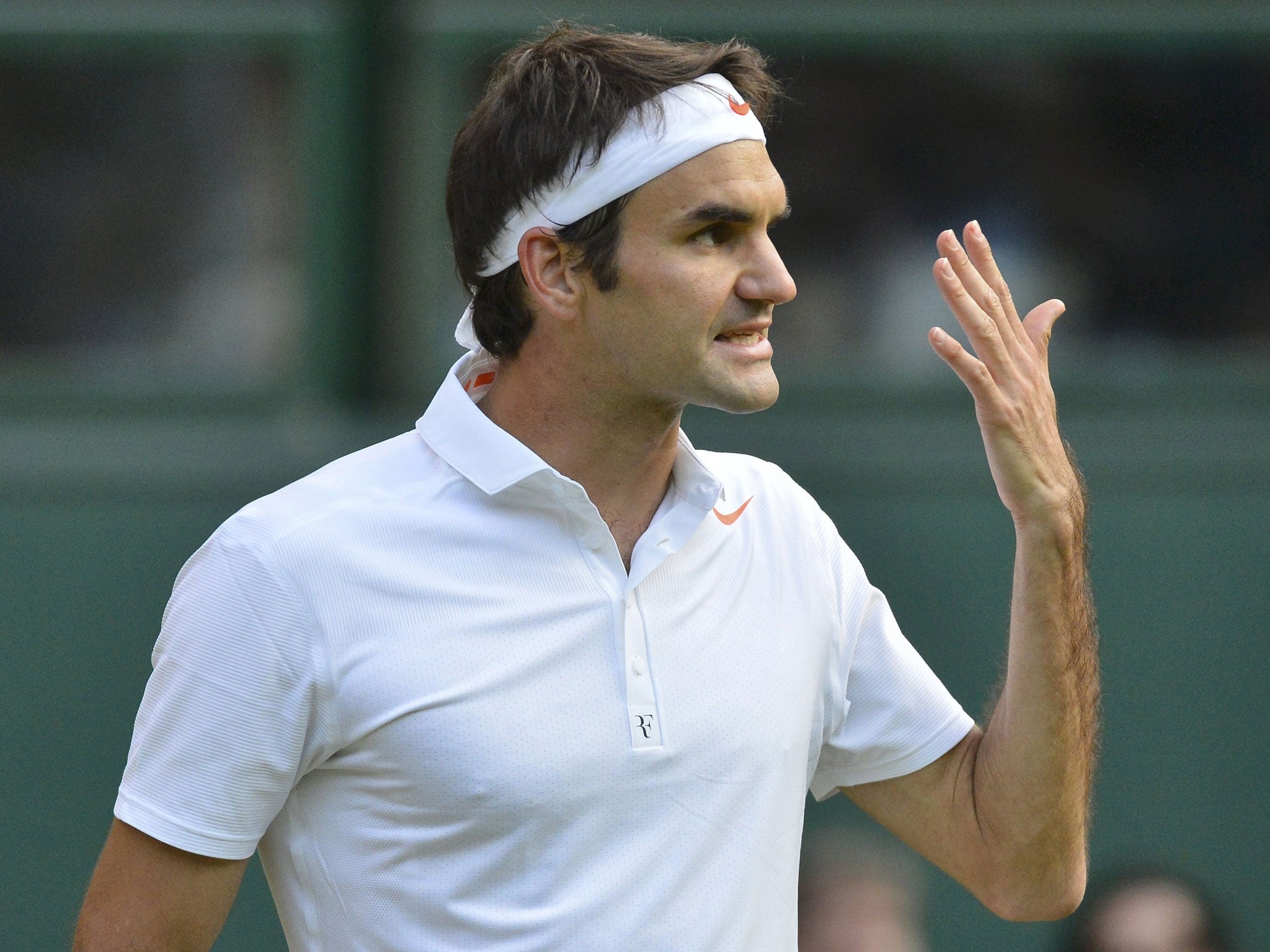Wimbledon 2013: So long, Roger Federer and Rafa Nadal. It used to be the Big Four - now it's Novak Djokovic vs and Andy Murray
Will Roger Federer want to carry with only a bit-part in the world's big events?

Your support helps us to tell the story
From reproductive rights to climate change to Big Tech, The Independent is on the ground when the story is developing. Whether it's investigating the financials of Elon Musk's pro-Trump PAC or producing our latest documentary, 'The A Word', which shines a light on the American women fighting for reproductive rights, we know how important it is to parse out the facts from the messaging.
At such a critical moment in US history, we need reporters on the ground. Your donation allows us to keep sending journalists to speak to both sides of the story.
The Independent is trusted by Americans across the entire political spectrum. And unlike many other quality news outlets, we choose not to lock Americans out of our reporting and analysis with paywalls. We believe quality journalism should be available to everyone, paid for by those who can afford it.
Your support makes all the difference.Roger Federer insisted it was not the end of an era, but that was the inescapable conclusion after the 31-year-old's stunning defeat here. There have long been signs that the greatest player in the game's history is in decline and this was brutal confirmation of the fact.
The ending of Federer's extraordinary record of 36 successive appearances in Grand Slam quarter-finals is the most telling of the string of statistics that flowed from his defeat to Sergiy Stakhovsky. In recent times the Swiss has regularly looked second best when he has faced the very finest players at the tail-end of Grand Slam tournaments, but until now he has always managed to negotiate his way through the first four rounds.
There have been times when he has looked vulnerable – he came back from two sets down to beat Alejandro Falla in the first round here three years ago and did the same against Julien Benneteau last year – but until now Federer had always found a way to win. Against an opponent who attacked him with relish, the Swiss simply could not find the answers. Stakhovsky became the lowest-ranked player to beat Federer anywhere since he lost to Mario Ancic in the first round here 11 years ago.
Federer's victory here last year is the only Grand Slam title he has won in the last three and a half years. The All England Club was his last major stronghold and it is now hard to see him in the future claiming an eighth victory here, which would put him clear of William Renshaw and Pete Sampras, with whom he currently shares the record.
Even when Federer appeared to be a fading force on other surfaces, grass always offered him the chance to rekindle former glories. His victory in a warm-up tournament at Halle in Germany two weekends ago suggested that he still remained a force on grass, but now even that claim looks hollow.
As a result of this defeat, Federer will drop to No 5 in the world rankings, his lowest position for 10 years. David Ferrer, remarkably, will climb to No 3, with Rafael Nadal at No 4. Federer insists that he intends to play for many more years, but will he really want to carry on as a player with only a bit-part role in the world's biggest events?
With Nadal also out of the current tournament and with renewed doubts over his long-term future, this fortnight has the feel of a turning point in the men's game.
Novak Djokovic and Andy Murray are already ranked No 1 and No 2 in the world. The rivalry of the two 26-year-olds looks set to dominate at the top of the game for some time to come, but this could also be a chance for other younger talents to emerge. The likes of Grigor Dimitrov, Jerzy Janowicz, Milos Raonic and Bernard Tomic are waiting in the wings.
For several years now, Djokovic, Murray, Nadal and Federer have taken the lion's share of the sport's honours. The "Big Four" has become an accepted part of the game's lexicon. If this defeat marks the beginning of the end for Federer – and perhaps for Nadal too – it will be a major challenge for the sport's popularity. Federer and Nadal have long been the biggest draws in tennis, despite the excellence of Djokovic and Murray. The problem with golden eras is that it can feel hollow when they come to an end.
Join our commenting forum
Join thought-provoking conversations, follow other Independent readers and see their replies
Comments